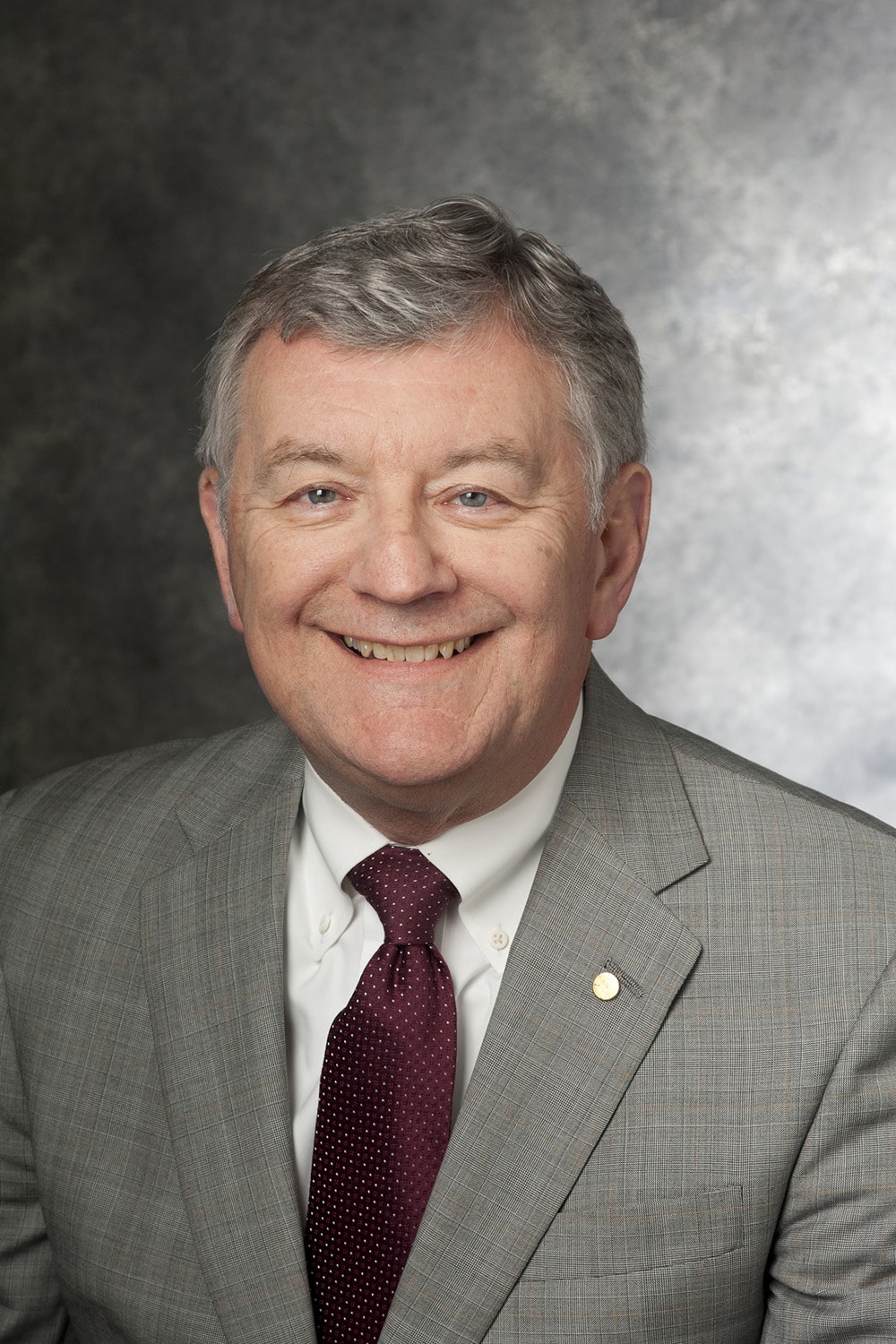
The Rev. William B. Lawrence
Photo by H. Jackson/Southern Methodist University.
Photo by H. Jackson/Southern Methodist University.
Telling the histories of these denominations requires placing them in the context of the nation’s history. And whenever the history of the country is complex, the complexities involve the church as well.
Recently, U.S. Sen. Thomas Cotton — who is also a United Methodist — created a new complication with legislation that he submitted to the Senate. Cotton is unhappy about research and writing that began when The New York Times launched its “1619 Project.”
That project was an attempt to discover and to publish information about a neglected part of America’s story, beginning when a ship called the White Lion reached a port in Virginia with a cargo of about two dozen slaves on August 20, 1619. It was the first vessel in a continuing enterprise of slave trading that lasted in the United States for about 240 years.
Sen. Cotton believes that the “1619 Project” has a number of errors. His proposed legislation would remove federal funding from any school that uses the “1619 Project” as a resource in teaching American history. In an interview about the legislative proposal, he said that the founders of the United States considered slavery to be a “necessary evil.”
Whether any of the nation’s founders actually used that phrase will require more research. But it is clear that many of the founders owned enslaved people. In fact, among the first 12 U.S. presidents — from George Washington, who took the office in 1789, to Zachary Taylor, who died in office in 1850 — only John Adams and his son, John Quincy Adams, did not own slaves.
Commentaries
UM News publishes various commentaries about issues in the denomination. The opinion pieces reflect a variety of viewpoints and are the opinions of the writers, not the UM News staff.
In 1774, John Wesley published his “Thoughts Upon Slavery.” The founder of the Methodist movement insisted that the concept of enslaving other people was based on “false foundations.” He described the horrific evils of the slave trade, starting with the ways Europeans had motivated some Africans to capture persons and sell them as slaves, and addressing the abuse to which slaves were subject.
He denied that it was acceptable for anyone to be excused from judgment on the grounds that one was not personally a slave owner. For Wesley, merely tolerating the existence of a system of enslavement was an accommodation with evil.
In 1780, the American Methodists required preachers to deliver sermons against the evils of slavery. Thereafter, the Methodists in North Carolina and Virginia adopted antislavery statements and insisted that Methodists should free any slaves that they owned. Church leaders declared that the enslavement of other persons is “contrary to the laws of God.”
In 1785, the first Book of Discipline published by the Methodists included a piece of church legislation that any church member who buys or sells slaves is “immediately to be expelled” from membership, “unless they buy them on purpose to free them.”
In 1800, the General Conference issued a “Pastoral Letter on Slavery,” signed by the three bishops of the church at the time (Coke, Asbury, and Whatcoat). It declared the enslavement of Black people “the great national evil” of the United States. It said “the whole spirit of the New Testament militates in the strongest manner against the practice of slavery.”
That pastoral letter directed annual conferences to appeal to the legislatures in their respective states for the emancipation of slaves. And it called for “the universal extirpation of this crying sin.”
So the documented history of Methodism makes clear that the founders of the church considered slavery to be “evil.” Nothing in the documents indicates that they felt slavery was in any sense “necessary.” These documents also make clear that the church leaders expected Methodist preachers and people to take action — in the pulpit and also in public — to remove the systems of slavery from America. Preachers were to proclaim that slavery is evil. People were to lobby their legislatures for ending enslavement.
In the ensuing years, however, this antislavery dedication faded. The church found ways to dishonor its founders and to ignore the suffering of the enslaved.
Forty-four years after the General Conference enacted church laws to demand that Methodists free their slaves or leave the church and to insist that Methodists take public antislavery steps, the denomination decided to divide. Rather than require a slave-owning bishop to emancipate the people whom he considered his property, Methodists split into two denominations. Rather than politically mobilize to end the system of slavery in each state, Methodists split along the boundaries of states that affirmed enslavement.
Cotton has insisted that he does not personally consider slavery to have been a “necessary evil,” but he believes the nation’s founders felt that way. While the debate about the national history continues, it is important for all Methodists with traceable roots in North America to recognize that the founders of Methodism were opposed to slavery, took antislavery actions, and urged the ministers and the people of Methodist churches to become public activists in an effort to end the enslavement of human beings.
Lawrence is an ordained elder of The United Methodist Church, former dean of Perkins School of Theology at Southern Methodist University and former president of the Judicial Council.
News media contact: Vicki Brown at (615) 742-5470 or newsdesk@umcom.org. To read more United Methodist news, subscribe to the free Daily or Weekly Digests.
Like what you're reading? Support the ministry of UM News! Your support ensures the latest denominational news, dynamic stories and informative articles will continue to connect our global community. Make a tax-deductible donation at ResourceUMC.org/GiveUMCom.



